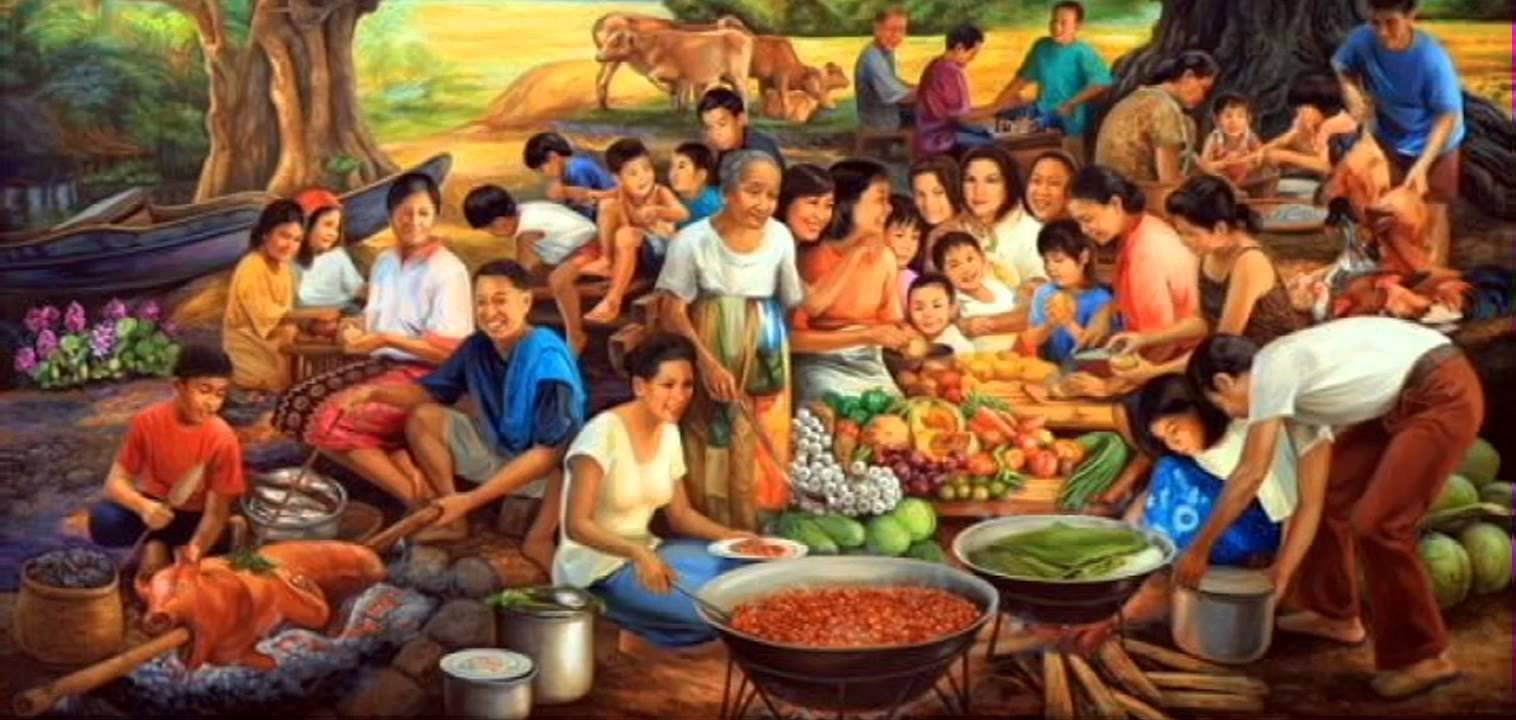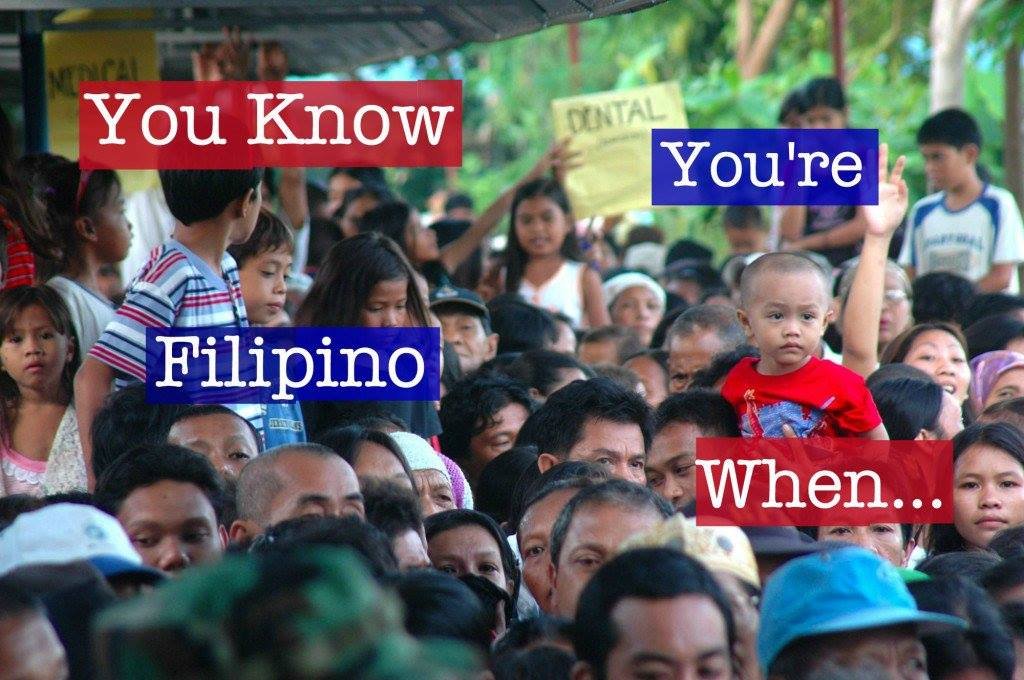Features Distinct to Filipinos
Amidst the discrimination and prejudice Filipinos experience within foreign communities, there are these special values they keep within their hearts towards their interaction with all the people including non-Filipinos. They do not easily change despite bitter treatment from their bosses, landlords, foreign customers, tourists, and non-Filipino acquaintances in the Philippines and abroad. While people from other nations acquire similar traits, the Filipino people showcase different and rare version of goodness portrayed to the people.

Despite the poverty, family problems, and any other related issues confronting the Filipinos, these values of theirs remain visible and influential, and indeed, have caused them to endure difficulties in life by being grateful always and good to others all the time. It is their moral standard that makes them resilient from any threat or problem.
Hospitality
The Filipinos possess common quality. It is, in fact, the most notable and important trait of every Filipino living across the globe. Hospitality is what they are proud of having that many people from outside of the country prefer to have a Filipino working mate or employee because their quality of being hospitable boosts the production and increases the number of investors or customers in the business. In the country, Filipinos welcome visitors with warm hearts and open arms.
At home, they give their best to the visitors to the extent that they would rather go to their relatives or friends to incur debts just to make their visitors contented and happy for the foods prepared on the table than just to offer them bottles of water. They keep their guests comfortable staying at home. Filipino hospitality is, indeed, a very valuable trait of the Filipinos and is unequaled and known throughout the world.
Close Family Ties
Filipinos do value their families so much that they would go into tears everytime there is a family member leaving home to work abroad or whenever a member of the family dies. Traditionally, the family is the unit of society and consists, at least until very recent times, of the parents, the grandparents, and the children (Hayden, 1942). The father happens to be the head of the family in Philippine ways. Patriarchy is seen in Philippine cultures, and that the ruling of the family by a father is the manifestation of it.
When it comes to household chores, it is the mother of the family who does the task. Additionally, she is also the budget planner of the family as well as the cook and the laundrywoman. Filipinos call their mothers “mama” or “nanay” and “papa” or “tatay” for their fathers. Usually, the father hands over his salary or income to the mother who does the budgeting of the money. It is also the mother who supports the entire family from the money given by the father.
In times of problems, family members dutifully help each other. They do not leave each other having the burden of the problems. It is the idea of the Filipino people that every problem of the family is not a problem of the parents alone (Worcester, 1914). It is the problem of the entire family especially to all the adult family members. For instance, when the youngest brother or sister pursues her or his study, his or her elder brothers or sisters as well as the parents dutifully will work together to send him or her to school. It is not only the burden of the parents alone. All the adults in the family carry them altogether.

Respect for the Elderly
Respect for the elders is considered the best feature of the Filipinos. As part of the culture of parenting, the parents exercise moral influence over their children (Mangahas, 1995). In return, the children obey their parents willingly and help them work for the ease of the parents. As a rule at home, the younger members of the family do not disturb the older ones to show respect and to avoid hearing something that only the parents can know.
They do not also interrupt conversations between or among the elders as much as they are expected not to join the conversations. The sayings “po” and “opo” are one of the common expressions showing respect to the elders and also to the people of all ages when they are strangers. Together with the bowing of the head, the Filipinos use the terms to all the people they meet.
Filipinos’ Sentimentalism
The Filipino people are sentimental which is shown in many ways such as when a Filipino spends time to visit his or her friend afar just because he or she misses his or her friend. Along the visit is the package or gifts locally called “pasalubong” as part of the surprise for a friend. During the departure, the friend is brought into tears as he or she leaves the house. As an exchange for the kindness, the friend would also prepare something known as “baon,” a thing like food for the travel or a remembrance for him or her.
Leaving a family or a friend has always been a hard time for the Filipinos and is always accompanied by much crying or tearful goodbyes.
The Value of Togetherness
Also known as “pakikisama” in the Filipino language, the sense of togetherness or the camaraderie has always been in the hearts of the Filipinos. It does not mean the Filipinos want to be dependent all the time. They just believe in the idea that in order to build a better society, one must help each other. There must have a collective action in every development taken place. What is best about it is that the Filipinos helping other people do not expect something in return.
They love to help without aiming of receiving something from the people they help. Whenever the helping is backed with some motives, it is not considered a “pakikisama.”
Debt of Gratitude
The Filipinos call it “utang na loob” in the local language. It is another Filipino value that is mostly visible during an encounter with sudden calamities or personal problems. Many Filipinos are known in helping back the ones who helped them in the past. Although there was no agreement made pertaining to an exchange of support, the Filipinos always feel obliged to help their friends or relatives who are in need of it. It is something that is an unwritten rule or moral obligation or a payment without contract that must be done to the people who have once given such things before.
On the other hand, if a person does not pay back, he or she will instantly be called “walang na utang na loob” or an ingrate.

Sense of Shame
Just like the other Asian people, Filipinos deal with the sense of shame to a high degree. “Hiya” or “kahihiyan” in Tagalog language is very existent in the minds of the Filipinos in a way that they behave properly in front of their relatives or visitors so that these people will not have something to speak against them.
The Filipinos have a diverse culture and are divided with so many ethnic groups. What unite them as a Filipino nation are these traits and values that are common to all of them. Philippine policies are mainly based from these values. These are also the reasons why the Filipinos are not always recognized by the foreigners as having different ethnic origins because they are portrayed as one.
Reference:
Panopio, Isabel S., Felicidad V. Cordero-MacDonald and Adelisa A. Raymundo (1995).
Sociology: Focus on the Philippines.
Worcester, Dean C. (1914). The Philippines: Past and Present
Wortman, Camille B. (1985). Attitudes and Social Perception
